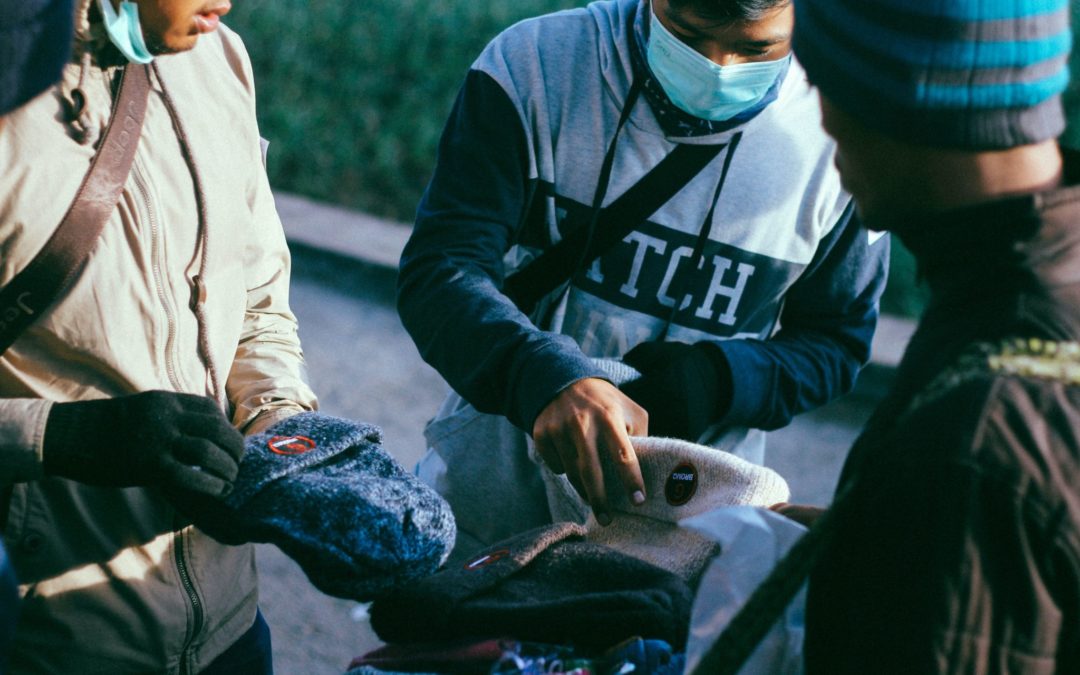
Youth and COVID-19 survey
Youth and COVID-19 survey
Friday, April, 24, 2020
Youth and COVID-19 survey
Friday, April, 24, 2020
ENGLISH
To bring youth voices to the forefront of action and policy responses, the Global Initiative on Decent Jobs for Youth (DJY) and its partners including the International Labour Organization, the UN Major Group for Children and Youth, AIESEC, the European Youth Forum, the EU Emergency Trust Fund for Africa and the United Nations Human Rights Office are conducting a survey on the impact of the COVID-19 pandemic on youth rights, with a focus on employment and education.
The survey targets young people from all regions, countries, and backgrounds; those actively engaged in economic activities across sectors and industries; as well as those that are in school and those not in employment, education and training (NEET). The survey results will be shared widely to help inform ILO constituents and Decent Jobs for Youth partners as they navigate these unprecedented times with a profound commitment to protect young people, their rights, voices and opportunities for decent work.
Please help us in distributing the survey to your young members and representatives as well as completing the survey yourself. You can distribute through the following channels:
- The survey, available in 15 languages, can be accessed here
- A social media campaign can be found on @DecentJobsYouth Twitter as well as @ILO social media channels. Please help disseminate the survey using our social media messages and graphics available here
- Forward this email text via email to young people and youth organizations
Let’s fight this pandemic together.
Best regards,
FRANCAIS
Objet: Enquête mondiale sur les jeunes et COVID-19
Pour amener les voix des jeunes au premier plan de l’action et des réponses politiques, l’Initiative mondiale pour l’emploi décent des jeunes (DJY) et ses partenaires, notamment l’Organisation internationale du travail, le Haut-Commissariat des Nations Unies aux droits de l’homme, le Groupe Majeur des Nations Unies sur les enfants et les jeunes, le Fonds fiduciaire d’urgence de l’Union européenne pour l’Afrique, l’AIESEC et le Forum européen de la jeunesse mènent une enquête sur l’impact de la pandémie de COVID-19 sur les jeunes et le monde du travail.
L’enquête cible des jeunes de toutes les régions, pays et origines; ceux qui participent activement à des activités économiques dans tous les secteurs et toutes les industries; ainsi que ceux qui sont à l’école et ceux qui n’ont pas d’emploi, d’éducation et de formation (NEET). Les résultats de l’enquête seront largement diffusés pour aider à informer les mandants de l’OIT et les partenaires DJY alors qu’ils traversent ces temps sans précédent avec un engagement profond pour protéger les jeunes, leurs droits, leurs voix et les possibilités de travail décent.
Veuillez nous aider à distribuer le sondage à vos jeunes membres et représentants ainsi qu’à remplir le sondage vous-même. Vous pouvez distribuer via les canaux suivants:
- L’enquête, disponible en 15 langues, est accessible ici
- Une campagne sur les réseaux sociaux est disponible sur twitter @ilo et @decentjobsforyouth social media messages and graphics disponible ici
- Transférer ce texte par e-mail à vos jeunes
ESPAÑOL
Los invitamos a participar y compartir ampliamente los siguientes productos con sus colegas jóvenes, redes juveniles y jóvenes beneficiarios. Ayúdenos a asegurar que las voces, ideas y agencia de los jóvenes se pongan a la vanguardia de la acción y las respuestas de política a la pandemia.
Toma la Encuesta Global Juventud y COVID-19: Diseñada en colaboración con el Grupo Principal de las Naciones Unidas para la Infancia y la Juventud, AIESEC, el Foro Europeo de la Juventud, la Oficina de Derechos Humanos de las Naciones Unidas, el Fondo Fiduciario de Emergencia de la Unión Europea para África y la Organización Internacional del Trabajo, esta encuesta tiene como objetivo (i) comprender el impacto de la pandemia sobre los derechos de los jóvenes, el empleo y la educación, e (ii) invitar las ideas y propuestas de los jóvenes para abordar la crisis. Los resultados se compartirán ampliamente para informar acciones de política al más alto nivel. Conoce más sobre la encuesta aquí.Ayúdenos a distribuir la encuesta a sus miembros y representantes jóvenes, así como a completar la encuesta usted mismo. Puede distribuir a través de los siguientes canales:
- La encuesta, disponible en 15 idiomas, se puede acceder aquí.
- Se puede encontrar una campaña de redes sociales en @DecentJobsYouth Twitter, así como en los canales de redes sociales de la @ILO. Ayude a difundir la encuesta utilizando nuestros mensajes de redes sociales y gráficos disponibles en Trello.
- Reenviar este texto por correo electrónico a jóvenes y organizaciones juveniles
Русский
Тема: Глобальное исследование по теме “Молодежь и COVID-19
В целях привлечения внимания молодежи к действиям и политическим мерам реагирования, Глобальная инициатива по созданию достойных рабочих мест для молодежи (DJY) и ее партнеры, включая Международную организацию труда (MOT), Основную группу ООН по проблемам детей и молодежи, AIESEC, Европейский молодежный форум, Чрезвычайный целевой фонд ЕС для Африки и Офис ООН по правам человека, проводят исследование о воздействии пандемии COVID-19 на права молодежи с особым вниманием на вопросы занятости и образования.
Данное исследование ориентировано на молодых людей из всех регионов, стран и слоев населения; тех, кто активно участвует в экономической деятельности в различных секторах и отраслях промышленности; а также тех, кто учится в школе, а также тех, кто не занимается профессиональной деятельностью, образованием и профессиональным обучением (NEET). Результаты обследования будут широко распространяться в целях содействия информированию членов MOT и партнеров по программе “Достойная работа для молодежи”, поскольку они, преодолевая эти беспрецедентные времена, проявляют глубокую приверженность делу защиты молодых людей, их прав, голоса и возможностей для получения достойной работы.
Пожалуйста, помогите нам распространить результаты опроса среди ваших молодых членов и представителей, а также заполнить анкету самостоятельно. Вы можете распространять опрос по следующим каналам:
- Доступ к анкете исследования на 17 языках можно получить здесь.
- Кампанию в социальных сетях можно найти в Twitter как @DecentJobsYouth, а также в социальных сетях МОТ. Пожалуйста, помогите распространить исследование, используя наши сообщения в социальных сетях и графики, доступные здесь.
- Пересылайте этот текст по электронной почте молодым людям и молодежным организациям.
Давайте бороться с этой пандемией вместе.
С наилучшими пожеланиями,
























